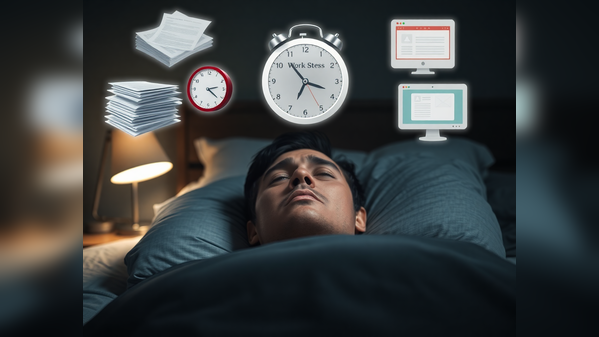The impact of job stress on sleep: how employers can help

10-Jan-2025 11:07 PM
Work-related stress is a major contributor to sleep disturbances, impacting the health and productivity of U.S. workers, according to a study in the American Journal of Industrial Medicine. Researchers found that job strain significantly increases sleep problems. Strategies like workload redesign and increased autonomy may improve sleep, well-being, and job performance.
Have you ever woken up in the middle of the night with your mind racing about work problems, coworker conflicts, or tough career decisions? You’re not alone. Job stress is a widespread issue that’s robbing U.S. workers of the sleep they need, according to a study published on January 8 in the American Journal of Industrial Medicine. Researchers found that work strain significantly increases the risk of sleep disturbances. The findings suggest that employers could do more to help workers get better rest, which would ultimately improve productivity. Dr. Jian Li, a professor of work and health at UCLA and the study’s senior researcher, said, “Strategies such as redesigning workloads and promoting worker autonomy could play an important role in improving sleep health and workers’ well-being.” The study analyzed data from over 1,700 participants in a long-term U.S. midlife study, tracking them for an average of nine years. Sleep disturbances were assessed based on common issues like trouble falling asleep, waking during the night, waking up too early, and feeling unrested during the day. “Sleep disturbances are a major public health concern, with recent statistics showing that about 1 in 7 adults struggle to fall asleep and 1 in 6 have trouble staying asleep,” the researchers noted. Using six different methods to measure job strain, the study consistently found a strong link between workplace stress and sleep problems. “These findings highlight the urgent need for early workplace interventions to reduce job strain,” the researchers concluded.